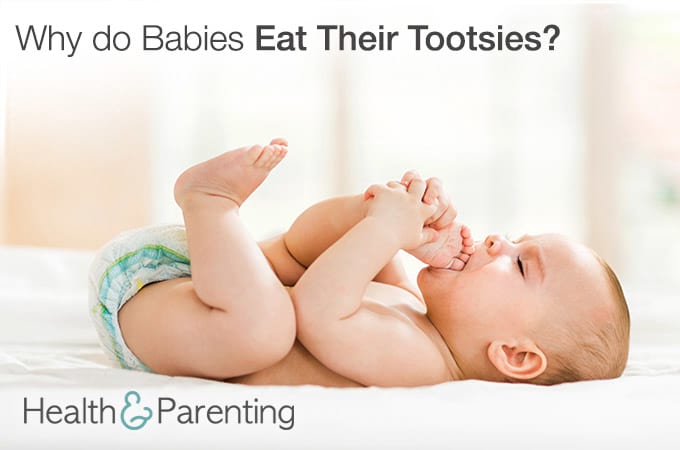Your baby learns about the world around him through his senses, and that includes taste. That’s why he’ll often put everything he can get his little hands on in his mouth. In fact, don’t be surprised if one day you turn around and your little one has his foot in his mouth.
Seeing anyone else sucking on their toes might be kind of gross. But when your baby does it, it’s actually pretty cute and perfectly normal.
Your baby’s mouth has a lot of nerve endings. When he wants to find out how something feels, he often puts it in his mouth. Since your baby is gradually learning more about her body, it’s natural for her to also try to learn more about her little piggies by putting them in her mouth.
Mouthing is considered a milestone in your baby’s development. Although it can vary, your little one may discover her feet between four and eight months.
But why does your baby suddenly have a taste for her toes? It’s quite simple. Your baby’s feet are readily available. Before she is mobile, she only has toys available to her that you give her, such as a rattle or teething ring. But once your baby discovers her tootsies, they are always within reach.
Although it might be a little strange to see your baby sucking on her toes, there is no need to stop her. This funny looking developmental milestone helps your baby develop body awareness and learn about objects. Mouthing objects also helps your baby get used to different sensations and textures, which may help when it comes time for her to transition to solid foods. Plus, your baby may find sucking on her toes is soothing.
Try to keep your baby‘s feet as clean as reasonably possible. But don‘t worry if she gets them a little dirty from crawling and rolling around. By the time she is running around and really getting her feet dirty, she will probably outgrow putting her feet in her mouth. But that doesn’t mean she will stop putting other things in her mouth. In fact, she may continue to put objects in her mouth until she is about three years old.
Once your baby is mobile, it’s especially important to be aware of his surroundings so he does not get a hold of anything he could choke on. Make sure you don’t leave any small objects out that your little one can grab and put in his mouth.
Lastly, make sure you capture some of your little one’s flexible, foot eating moves with your camera. As your baby grows up, you want to remember how cute this stage was. Plus, your child might be surprised at how limber they were!
Written by Mary Ann DePietro @writerlady34
This information is not intended to replace the advice of a trained medical doctor. Health & Parenting Ltd disclaims any liability for the decisions you make based on this information, which is provided to you on a general information basis only and not as a substitute for personalized medical advice. All contents copyright © Health & Parenting Ltd 2016. All rights reserved.










